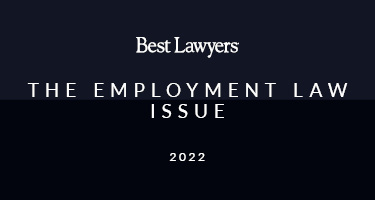The IRS Releases FAQ Guidance on Premium Assistance for COBRA Coverage
On May 18, 2021, the Internal Revenue Service (IRS) issued Notice 2021-31 which contains much anticipated guidance needed to implement the COBRA subsidy provisions included in the American Rescue Plan Act of 2021 (ARPA). The guidance contains 86 questions and answers that address many issues that have arisen with respect to COBRA premium assistance under ARPA. The IRS indicates that the questions and answers apply for purposes of COBRA continuation coverage requirements under ARPA for both federal COBRA and comparable state mini-COBRA requirements. However, any question or answer or particular part of an answer that is applicable only to federal COBRA refers specifically to federal COBRA. The guidance further clarifies that the COBRA premium assistance requirements apply to the employer or plan sponsor, group health plan, or issuer, depending on the facts and circumstances.
The guidance provides questions and answers with respect to following categories: eligibility, reduction in hours, involuntary termination of employment, coverage eligible for COBRA premium assistance, beginning of COBRA premium assistance period, end of COBRA premium assistance period, extended election period, extensions under the emergency relief notices, payments to insurers under federal COBRA, comparable state continuation coverage, calculation of COBRA premium assistance credit, and claiming the COBRA premium assistance credit. The guidance also recognizes that the Treasury Department and the IRS are aware of certain additional issues related to the COBRA premium assistance provisions in the ARPA that are not addressed in this notice. The Treasury Department and the IRS are continuing to consider these issues and the possibility of issuing guidance with respect to them.
Notably, the FAQs provided or confirmed the following:
Eligibility
- The guidance clarifies that an assistance eligible individual (AEI) also includes qualified beneficiaries who are the spouse or dependent child of the employee who had the reduction in hours or involuntary termination of employment resulting in a loss of coverage, as well as the employee, if that reduction in hours or involuntary termination of employment caused the qualified beneficiary to lose coverage and the other requirements are satisfied.
- An individual who loses group health coverage in connection with the termination of a covered employee’s employment by reason of the employee’s gross misconduct is not a qualified beneficiary and, thus, cannot be an AEI.
- An individual can become an AEI more than once during the six-month period in which the subsidy is provided. An example in the FAQs clarifies that an AEI who is eligible on April 1, 2021, then later becomes eligible for coverage under another employer’s group health plan coverage (and no longer eligible for the subsidy) will become subsidy eligible if the employee’s spouse loses group health plan coverage. Both the employee and the spouse become AEIs and would be eligible for the subsidy until September 30, 2021.
- Employers may require individuals to provide a self-certification or attestation regarding their eligibility status with respect to a reduction in hours or involuntary termination of employment, which may assist the employer in substantiating its entitlement to the credit. Additionally, employers may require individuals to self-certify or attest as to their eligibility status regarding other disqualifying group health plan coverage or Medicare. The self-certification or attestation may be used to assist the employer in substantiating its entitlement to the premium assistance credit. Employers must keep a record of an individual’s attestation and may rely on the attestation regarding reduction of hours, involuntary termination, and eligibility for other disqualifying coverage.
- The guidance makes clear that no qualifying events other than a reduction in hours or an involuntary termination of employment, such as divorce or a covered dependent child ceasing to be a dependent child, will be considered qualifying events for an individual for COBRA premium assistance.
- Individuals who lose coverage under a health plan that is not subject to COBRA are not eligible for the COBRA premium assistance.
Involuntary Termination of Employment
- The Notice clarifies what constitutes an involuntary termination but states that the determination of whether a termination is voluntary is based on facts and circumstances. The Notice otherwise provides that an involuntary termination of employment means:
- A severance from employment due to the independent exercise of the unilateral authority of the employer to terminate the employment, where the employee was willing and able to continue performing services.
- An employee-initiated termination for good reason due to employer action that results in a material negative change in the employment relationship for the employee analogous to a constructive discharge.
- Involuntary termination for cause.
- Participation by an employee in a window program under which employees with impending terminations of employment are offered a severance arrangement to terminate employment within a specified period of time.
Calculation of COBRA Premium Assistance Credit
- The amount of the credit is the premium that would have been charged to an AEI in the absence of the premium assistance and does not include any amount of subsidy that the employer would have otherwise provided.
Claiming the COBRA Premium Assistance Credit
- Governmental entities are eligible to claim the credit.
- A premium payee claims the credit by reporting the credit and the number of individuals receiving COBRA premium assistance on the designated lines of its federal employment tax return(s), usually Form 941. The Notice clarifies that the premium payee may (1) reduce the deposits of federal employment taxes, including withheld taxes, that it would otherwise be required to deposit, up to the amount of the anticipated credit, and (2) request an advance of the amount of the anticipated credit that exceeds the federal employment tax deposits available for reduction by filing Form 7200.
- The guidance clarifies that premium payees that do not have any employment tax liability can still claim the credit on the Form 941 for the quarter in which the premium payee becomes entitled to the credit.
- A third-party payer (such as a PEO, CPEO, or § 3504 agent) can be treated as a premium payee for purposes of claiming the premium assistance credit under certain circumstances.
We will continue to monitor this and other guidance regarding the COBRA subsidy under ARPA. For further questions regarding this guidance, please feel free to contact the authors of this alert, Tiffany Downs, partner in our Atlanta office and head of FordHarrison’s Employee Benefits practice group at tdowns@fordharrison.com, and Rena Felton, counsel in our Atlanta office and member of the Employee Benefits practice group at efelton@fordharrison.com. Of course, you may also contact the FordHarrison attorney with whom you usually work.



















